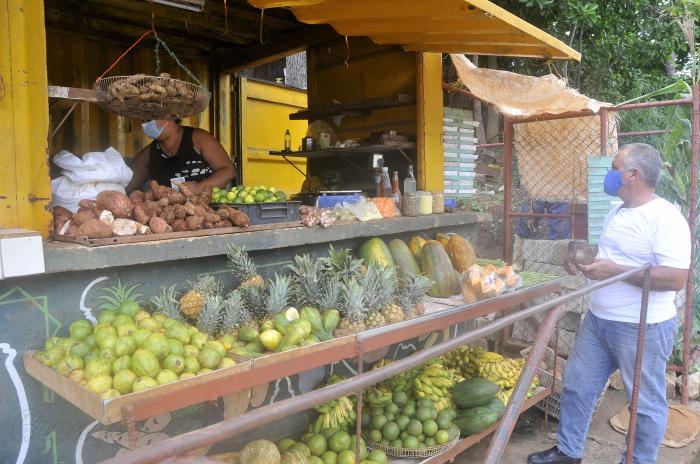
The Cuban economy is entering a stage of gradual recovery, based on control of COVID-19, thanks to our health system and progress in vaccination, stated Alejandro Gil Fernández, Deputy Prime Minister and head of Economy and Planning, during a meeting with the media in Havana’s International Press Center.
He indicated that control of the epidemic “puts us in better conditions to reopen fundamental activities; although there can be no unfounded expectations, since significant results cannot be determined in only a few months’ time.”
Advancing toward this end, he reiterated, will require opening certain services, including tourism and concretizing all the measures being implemented by the country’s leadership to address the negative effects of the pandemic.
He recalled that 2021 has been a year with many limitations, even more so than 2020. Expenses required to confront the pandemic and the consequent shutdown of our principal activities, the economic blockade and related measures meant to choke the country’s development, as well as the necessary transformations we ourselves are undertaking in the monetary arena, have been determinant factors in the current situation of the Cuban economy.
He noted that the tension is evident, since in 2020 the economy lost 240 million dollars in income, as compared to 2019, “leading to a contraction of the gross domestic product of almost 11%. While, income during the current year is 500 million less than that generated by this date in 2020.”
Deputy Prime Minister Gil Fernández recalled that transformations have been made in the functioning of the state enterprise sector, as the economy’s principal actor, along with significant changes in the private arena. He cited as examples, increased flexibility for the self-employed, as well as the broadening of projects this sector may undertake. Likewise, the first steps are being taken in the establishment of micro, small and medium sized companies, along more options for non-agricultural cooperatives.
In an initial stage, the Minister continued, we focused the priority of transformingself-employmenton establishing a legal framework, since small businesses were operating under these norms. We decided that all operations with more than three hired workers would become micro, small or medium sized companies, or a non-agricultural cooperative. “The platforms for this were then created, but, in addition to these conversions, 67 other projects have been approved, as new endeavors," he noted.
Regarding this new format, he said, no limitations or goals to meet have been established. These companiesconstitute another economic actor, which will play a complementary role, without time or quantity restrictions. The idea is open to all enterprises that comply with the policy design approved by the government.
He also pointed out that one of the recent innovations is the creation of state-owned micro, small and medium sized companies. There are already four in the country, including aForeign Trade company, which will devote its efforts to meeting the small quantity needs of the state and private sectors.
The Minister added that, in another arena, there are more than 60 state enterprises which have begun the process of restructuring workers’ compensation, without the obligation to followa salary scale that has limited the autonomy of the state sector,as compared to thatof non-state economic actors.
All these concrete accomplishments, Gil Fernandez insisted, mean that, despite the exceptional situation of tense liquidity the country has faced, and although restrictive U.S.measures against the Cuban people remain in place, we are achieving diversification of our productive fabric, providing economic actors more flexibility and gaining greater participation on the part of entrepreneurs. All this will lead, little by little, to the recovery of supply available to the population and of activities that have been absent these last two years.
Giventhe current context, there are priorities that are key to advancing toward recovery, albeit gradually, of the economic and social life of Cubans.
In this regard, the Deputy Prime Minister stated that the first priority is to confront inflation, the phenomenon that has generated the most complaints from the population, the most controversial and the most difficult to address.
This is an issue that is seen on a daily basis in prices that continue to rise, the causes of which are dissimilar, but which must be resolved, he stated.
On another level, he noted that he sustainability of our National Electric System is a clear objective, an issue that not only affects the population, but also productive activity. "We have been obliged to shut down a series of activities of great impact to minimize the negative effects of the energy situation on the people, and this is a contradiction given the need to recover the economy," he said.















